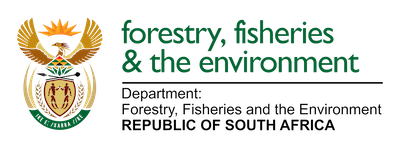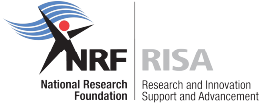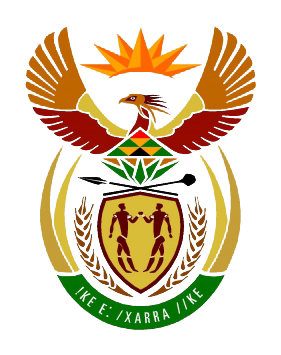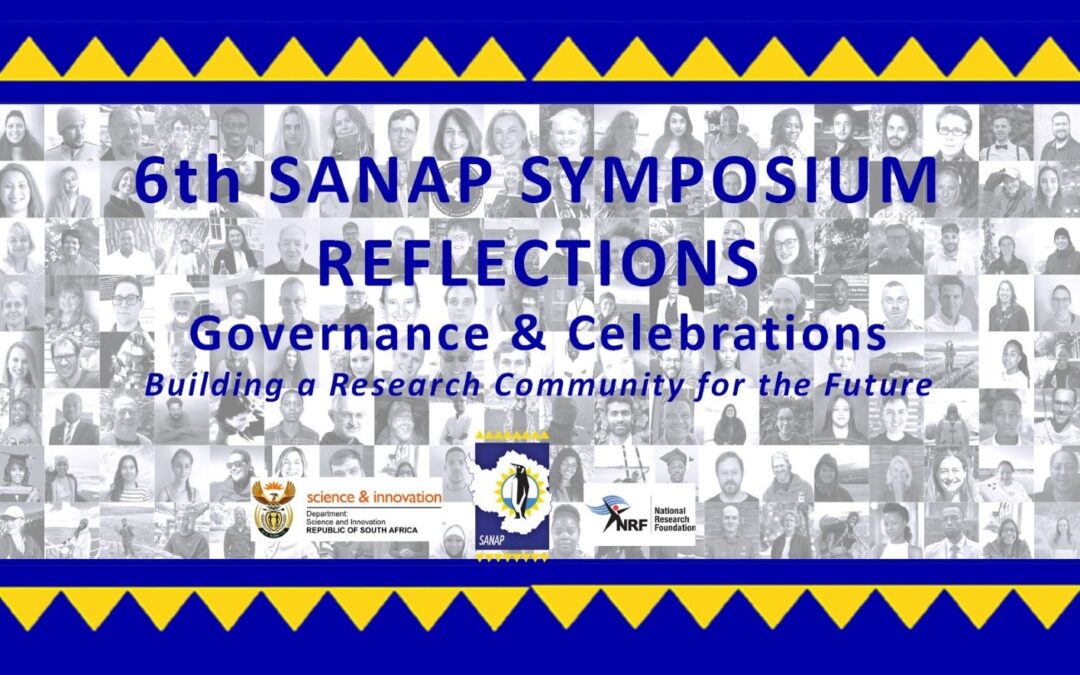
by Ria Olivier | Mar 8, 2024 | Research, SANAP, SANAP Student, Science
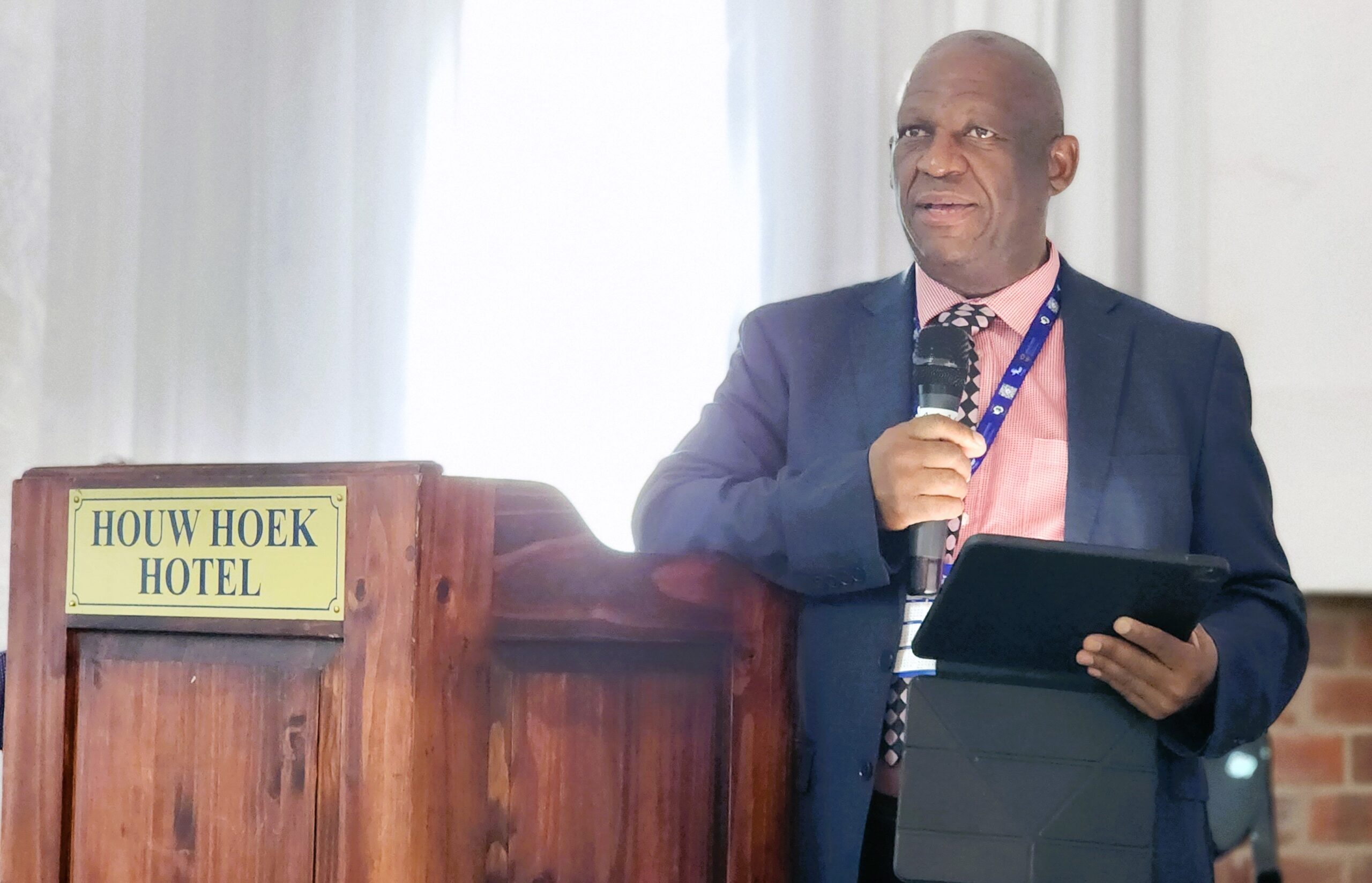 During the 6th SANAP symposium, time was allocated for the presentation of governance issues, and this was done on the first day during the opening ceremony. Dr Gilbert Siko , the Director of Marine & Polar Research at the Department of Science and Innovation gave the first presentation. His role within the Research Development and Support Programme it is to promote the development of research, the production of scientific knowledge, and human capital development in science areas in which South Africa enjoys a geographic advantage, that includes Antarctic and marine research. Dr Siko highlighted the strategic importance of the research conducted through the South African National Antarctic Programme.
During the 6th SANAP symposium, time was allocated for the presentation of governance issues, and this was done on the first day during the opening ceremony. Dr Gilbert Siko , the Director of Marine & Polar Research at the Department of Science and Innovation gave the first presentation. His role within the Research Development and Support Programme it is to promote the development of research, the production of scientific knowledge, and human capital development in science areas in which South Africa enjoys a geographic advantage, that includes Antarctic and marine research. Dr Siko highlighted the strategic importance of the research conducted through the South African National Antarctic Programme.
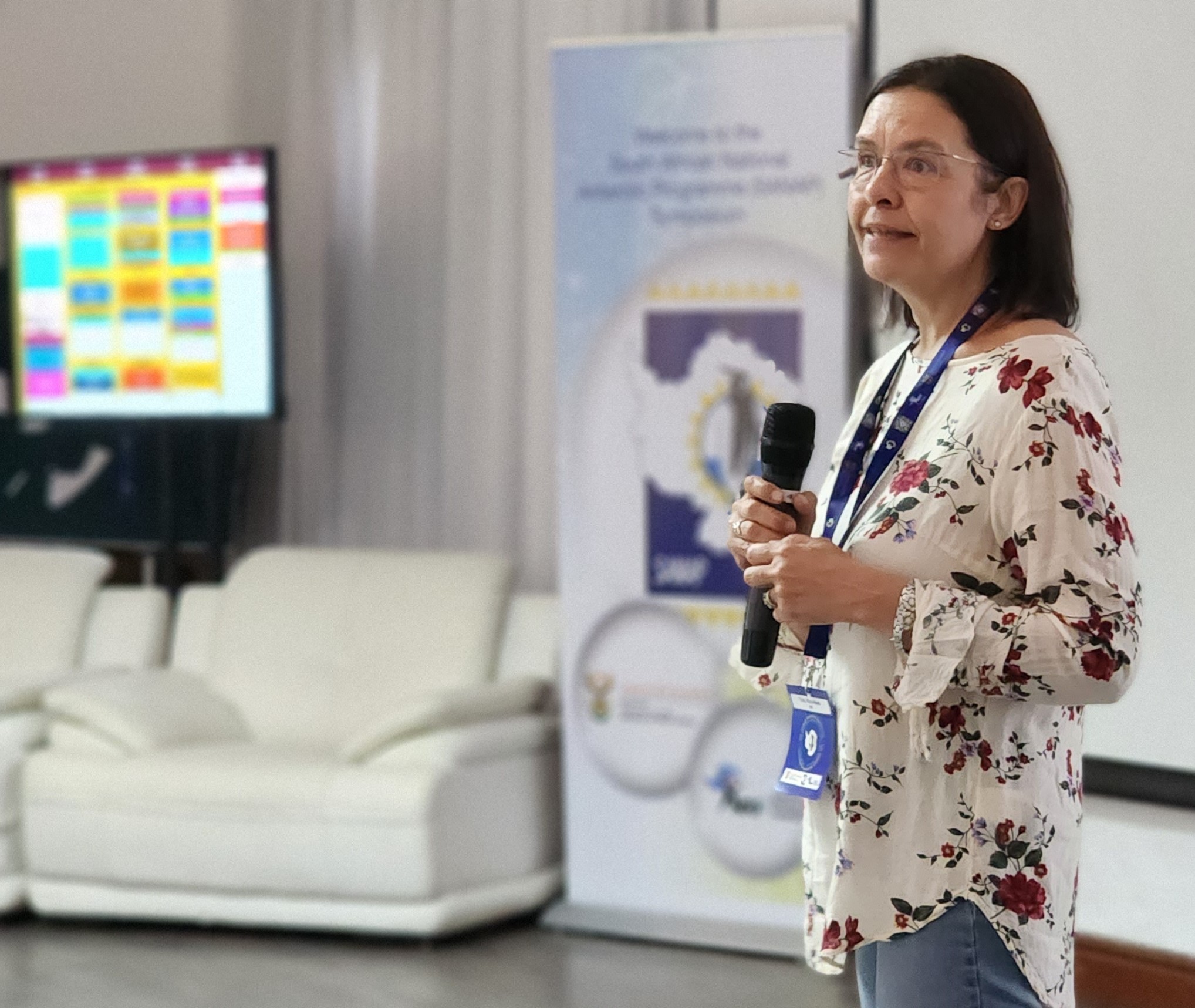 Dr Siko was followed by Tracy Klarenbeek, Director of Knowledge Advancement and Support of the National Research Foundation (NRF). She highlighted that create innovative funding instruments such as SANAP serve to transform the scientific landscape and inspire a representative research community to aspire to global competitiveness. She shared the outcomes of the 2023 SANAP Call for Proposals for funding cycle 2024 – 2026 with the community. She also mentioned that mentorship initiatives for unsuccessful applicants would be implemented via SAPRI.(right)
Dr Siko was followed by Tracy Klarenbeek, Director of Knowledge Advancement and Support of the National Research Foundation (NRF). She highlighted that create innovative funding instruments such as SANAP serve to transform the scientific landscape and inspire a representative research community to aspire to global competitiveness. She shared the outcomes of the 2023 SANAP Call for Proposals for funding cycle 2024 – 2026 with the community. She also mentioned that mentorship initiatives for unsuccessful applicants would be implemented via SAPRI.(right)
Dr Siko was followed by Tracy Klarenbeek, Director of Knowledge Advancement and Support of the National Research Foundation (NRF). She highlighted that create innovative funding instruments such as SANAP serve to transform the scientific landscape and inspire a representative research community to aspire to global competitiveness. She shared the outcomes of the 2023 SANAP Call for Proposals for funding cycle 2024 – 2026 with the community. She also mentioned that mentorship initiatives for unsuccessful applicants would be implemented via SAPRI.
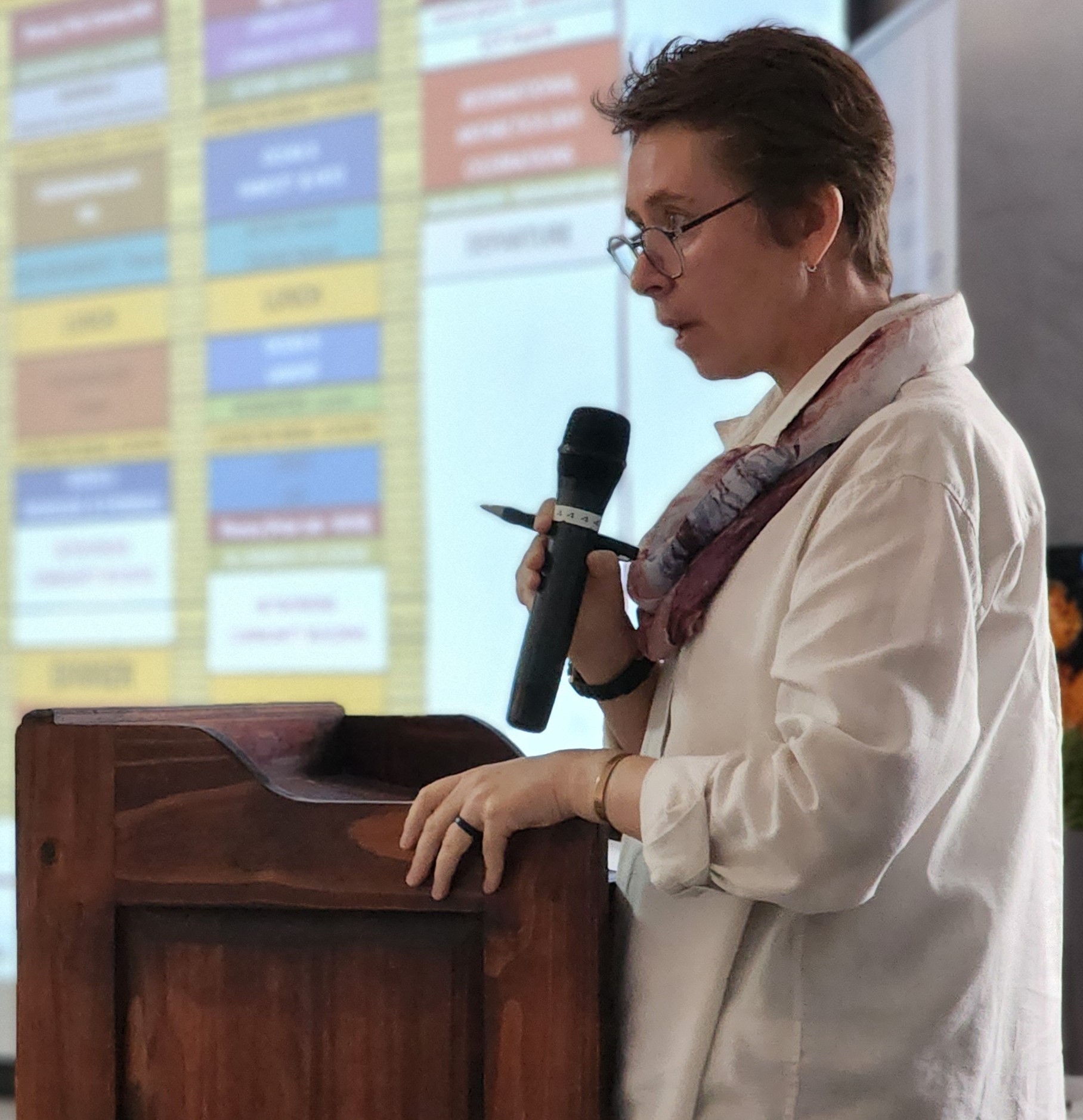
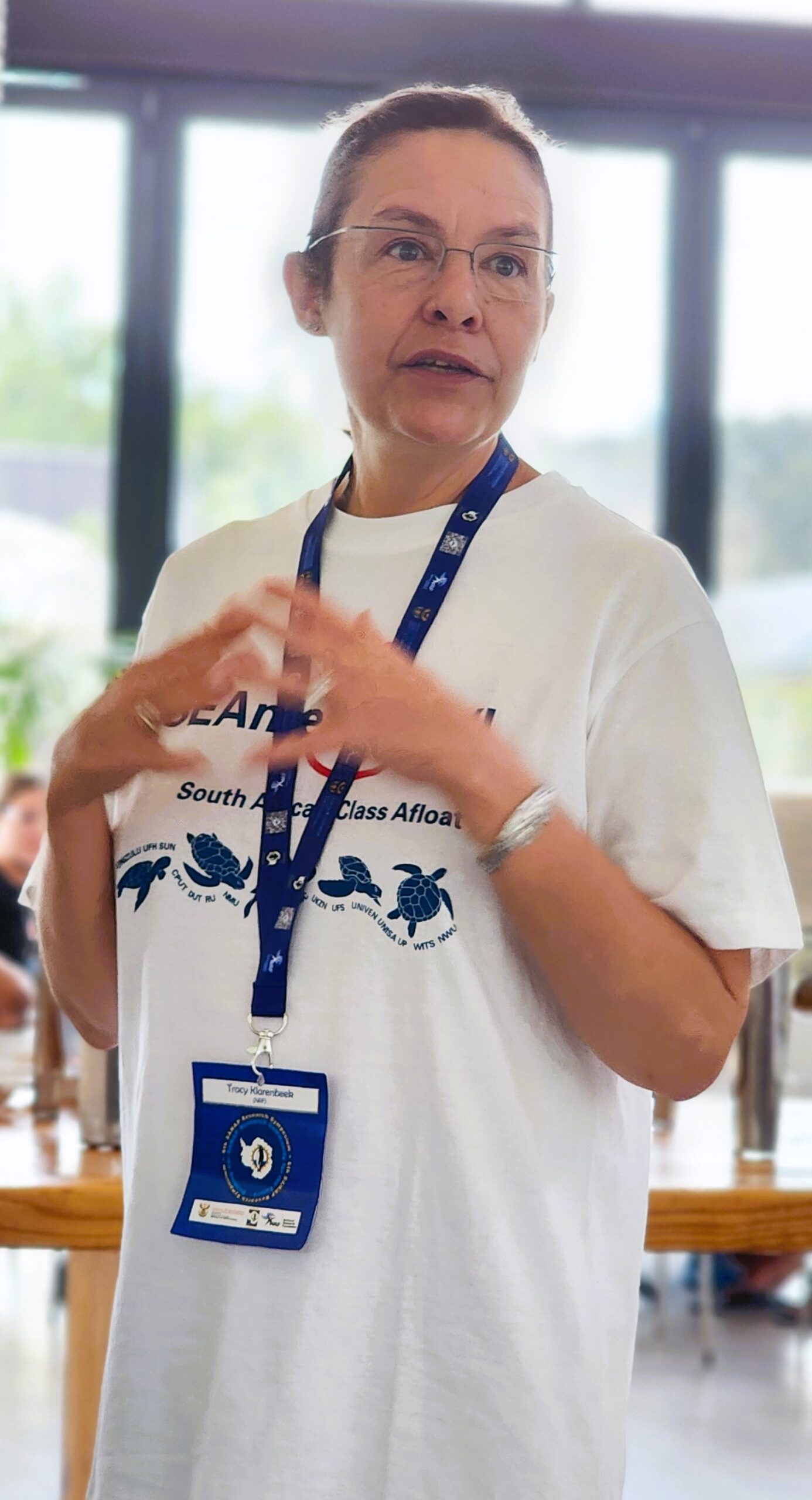 Prof Bettine van Vuuren (right), Chair of the South African National Committee for SCAR gave feedback on the committee meeting. She also highlighted the function and activities of SCAR and the importance to be informed of these activities, and to be aware of scholarship opportunities. She encouraged early career researchers to become involved in SCAR committees and action scholarships.
Prof Bettine van Vuuren (right), Chair of the South African National Committee for SCAR gave feedback on the committee meeting. She also highlighted the function and activities of SCAR and the importance to be informed of these activities, and to be aware of scholarship opportunities. She encouraged early career researchers to become involved in SCAR committees and action scholarships.
The highlight of the Symposium was the international Antarctic day celebrations where Tracy Klarenbeek (left)addressed all attendees during the closing ceremony with a heartfelt talk. All participants, old and new, were thanked for their participation in the Symposium and their dedication to the SANAP programme. Tracy Klarenbeek talk gave a personal perspective of administering the SANAP programme:
“by facilitating Antarctic and Southern Ocean research, and awarding student bursaries, it is evident that the work I do changes lives”.
The opportunity to access the Southern Ocean, Antarctica and the sub-Antarctic islands (Gough and the Prince Edward Islands) is limited to the lucky few, and the work of the National Research Foundation makes this a reality for researchers and students alike.
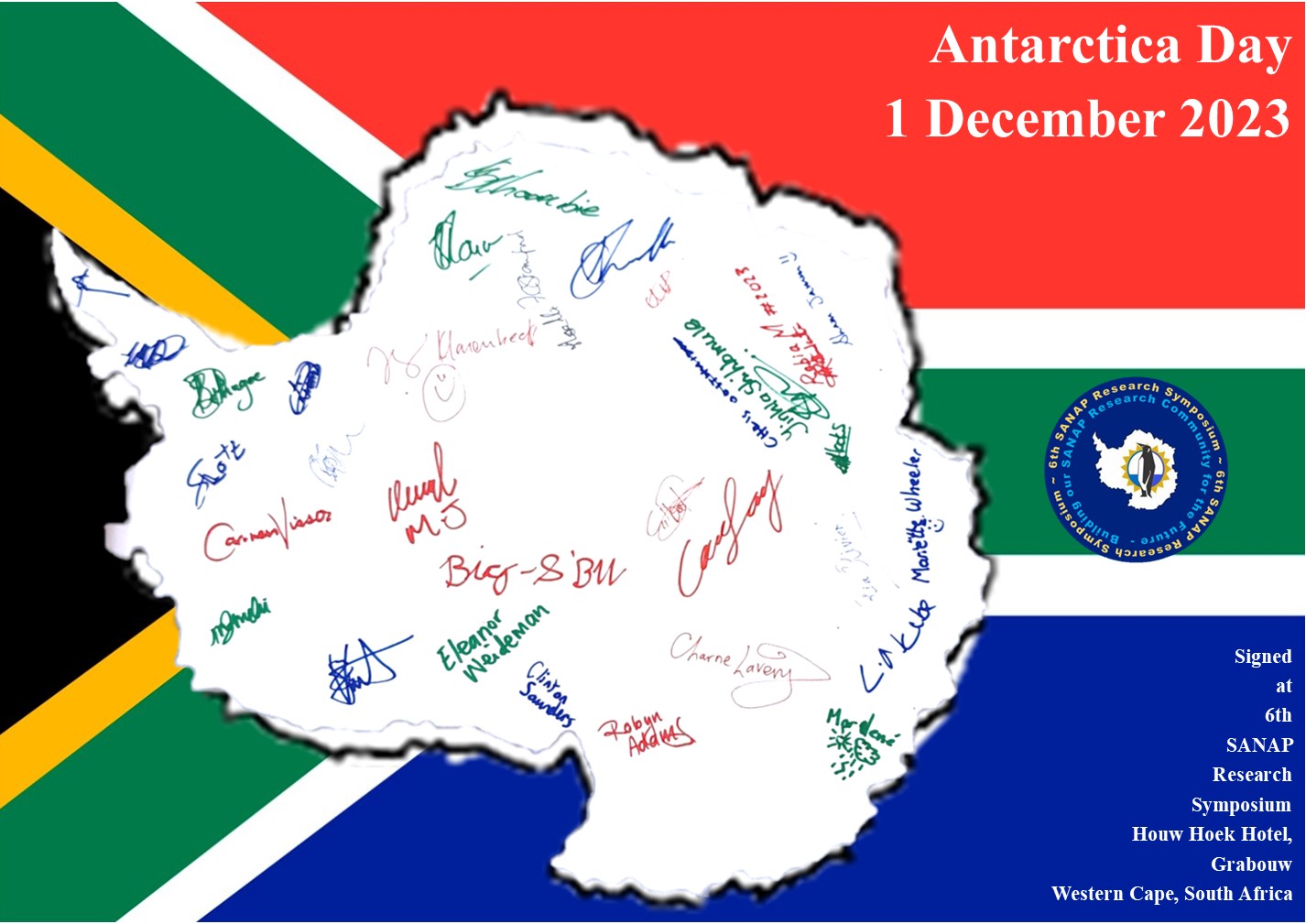 A printed Map of Antarctica was signed by everyone on International Antarctica Day 1st December 2023 at Houw Hoek Hotel!
A printed Map of Antarctica was signed by everyone on International Antarctica Day 1st December 2023 at Houw Hoek Hotel!
Speakers photos: credit Anche Louw – SA Polar Research Infrastructure/Antarctic Legacy of SA
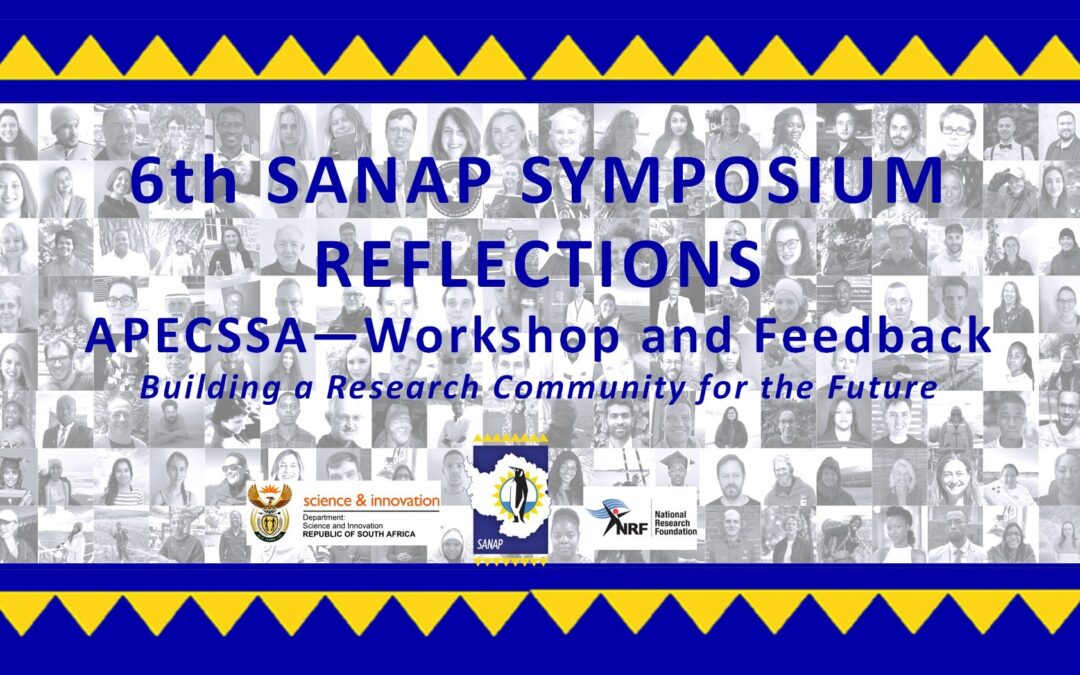
by Ria Olivier | Mar 4, 2024 | APECSSA, Fellowship, Research, SANAP, SANAP Student
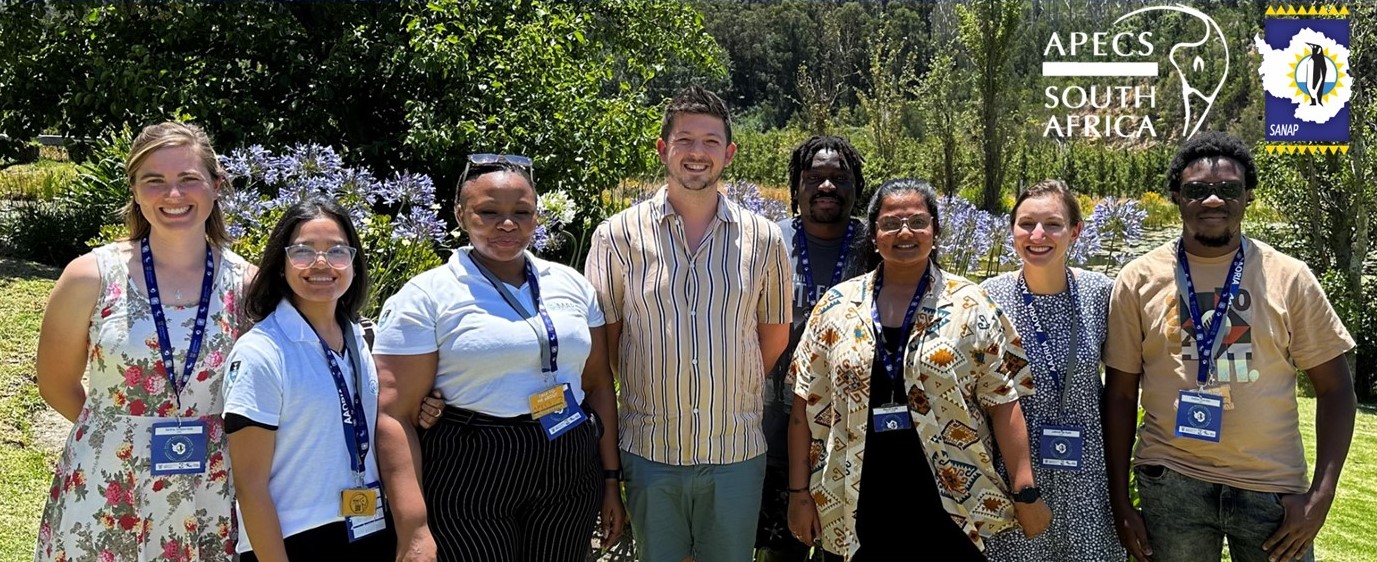 For the first time ever at a SANAP Symposium an Early Career Event was organised by APECS-South Africa. The event was an opportunity to encourage ECRs to become members and to socialise with current members, in fact it was the first time that the current committee had all managed to meet in person and not over zoom. (Above group photo of APECSSA committee members 2024 that were able to attend the Symposium)
For the first time ever at a SANAP Symposium an Early Career Event was organised by APECS-South Africa. The event was an opportunity to encourage ECRs to become members and to socialise with current members, in fact it was the first time that the current committee had all managed to meet in person and not over zoom. (Above group photo of APECSSA committee members 2024 that were able to attend the Symposium)
 APECS-South Africa also wanted to use this time to engage in a community survey with ECRs to discuss important topics around career development and community inclusion. This survey was being conducted anonymously in real time and so provided a safe space for ECRs to raise any concerns they felt within the SANAP community. Most importantly, APECS-South Africa was able to then relay the results of this survey to the PIs and senior leadership of the SANAP community. (Above words used by ECRs to describe their journey, skills they need and what is missing in the organisation)
APECS-South Africa also wanted to use this time to engage in a community survey with ECRs to discuss important topics around career development and community inclusion. This survey was being conducted anonymously in real time and so provided a safe space for ECRs to raise any concerns they felt within the SANAP community. Most importantly, APECS-South Africa was able to then relay the results of this survey to the PIs and senior leadership of the SANAP community. (Above words used by ECRs to describe their journey, skills they need and what is missing in the organisation)

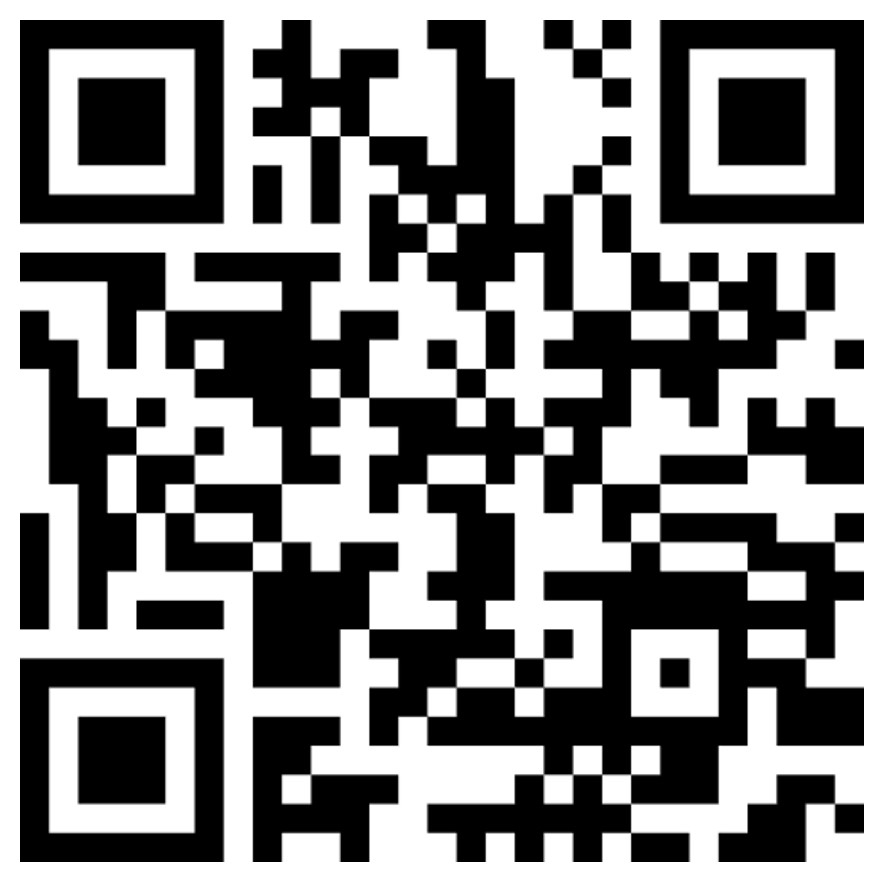 APECS-South Africa plans to continue running this survey going forward at future SANAP Symposiums so that ECRs feel like their voice is being heard and help the SANAP Community become better and more inclusive for everyone. During the workshop ECRs were able to respond to many questions (above ex). If you as an ECR has not yet responded click on the QR Code.
APECS-South Africa plans to continue running this survey going forward at future SANAP Symposiums so that ECRs feel like their voice is being heard and help the SANAP Community become better and more inclusive for everyone. During the workshop ECRs were able to respond to many questions (above ex). If you as an ECR has not yet responded click on the QR Code.
Meet APECSSA 2024 Committee
Full feedback presentation available
(Text, Slides and Group Photo by Tommy Ryan-Keogh.)
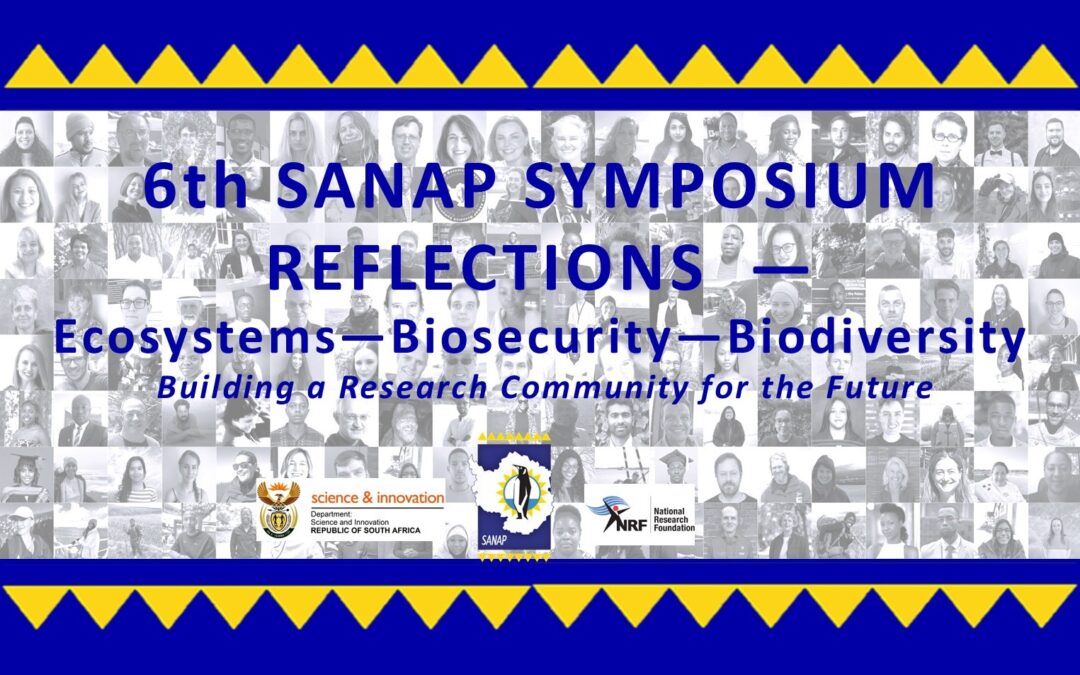
by Ria Olivier | Feb 27, 2024 | Research, SANAP, SANAP Student
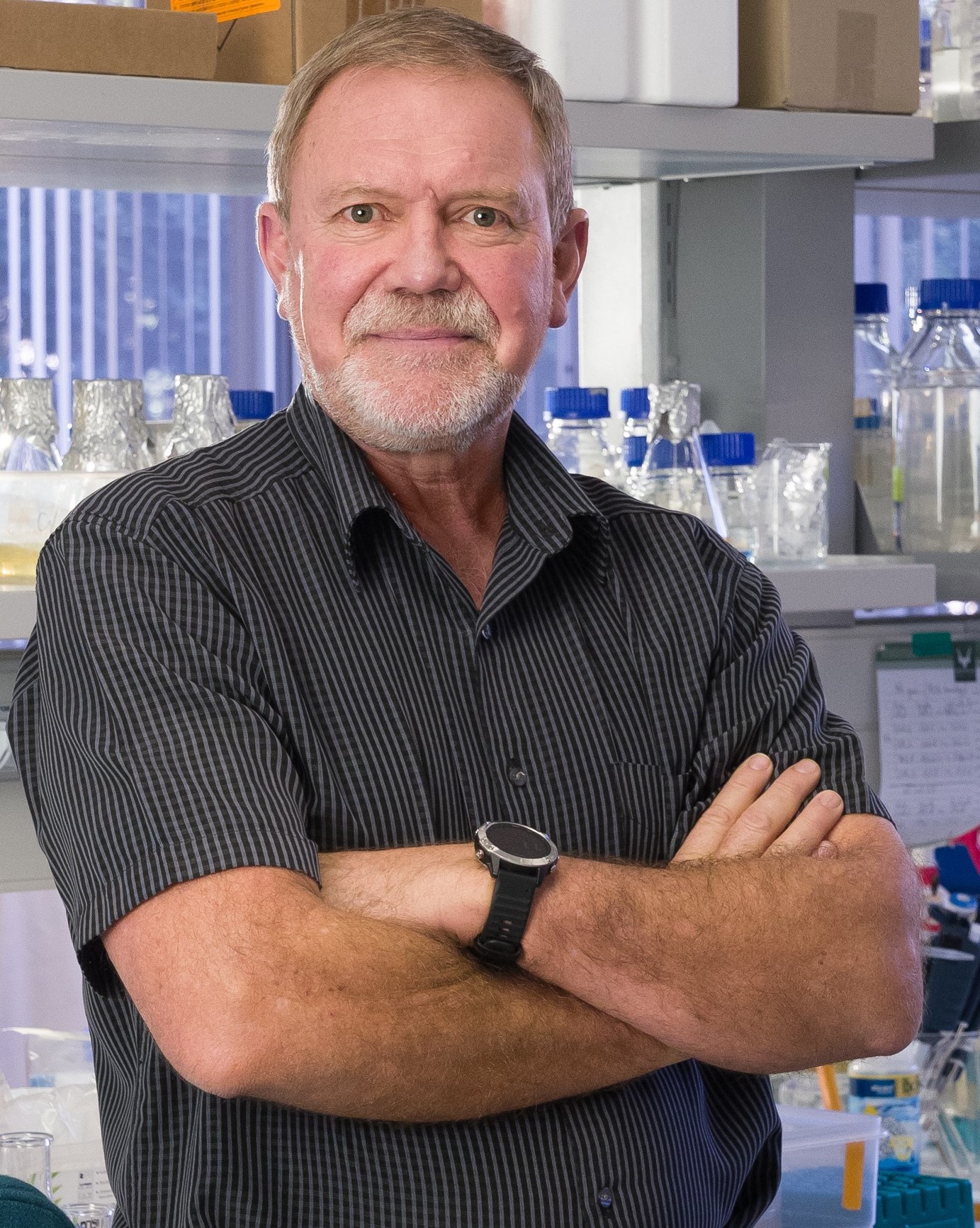 Another session within the Marine and Antarctic Research Strategy research theme : Ecosystems, biodiversity and biodiscovery was chaired by Donald Cowan of the University of Pretoria, he also chaired the session for Thulani Makhalanyane’s project research. Dr Dowan started of the first section with his own presentation followed by research within his project.
Another session within the Marine and Antarctic Research Strategy research theme : Ecosystems, biodiversity and biodiscovery was chaired by Donald Cowan of the University of Pretoria, he also chaired the session for Thulani Makhalanyane’s project research. Dr Dowan started of the first section with his own presentation followed by research within his project.
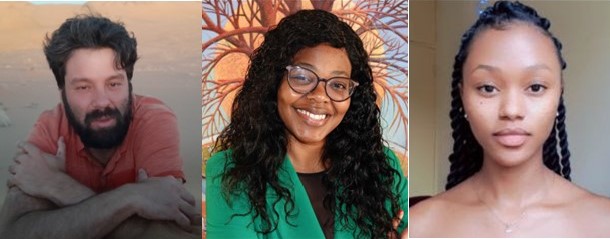 Above (l-r): Pedro Lebre, Silindile Maphosa, Lefentse Mashamaite
Above (l-r): Pedro Lebre, Silindile Maphosa, Lefentse Mashamaite
- Don Cowan: Microbial ecology of Antarctic desert soils. (Abstract)
- Pedro Lebre: Biogeographic survey of soil microbial communities across Antarctica. (Abstract)
- Silindile Maphosa: Exploring the functional potential of microbial metagenome-assembled genomes (MAGs) from sub-Antarctic islands. (Abstract)
- Lefentse Mashamaite: Microbial diversity in Antarctic Dry Valley soils across an altitudinal gradient. (Abstract)
 Prof Makhalanyane project presentations. Above (l-r): Runesu Bakasa, Marike Hillocks, Riaan Pierneef, Mancha Mabaso, Choaro Dithugoe
Prof Makhalanyane project presentations. Above (l-r): Runesu Bakasa, Marike Hillocks, Riaan Pierneef, Mancha Mabaso, Choaro Dithugoe
 Poster Presentations. Above (l-r): Sade Magabotha, Christophe Lefebvre, Elizabe Malan, Benjamin Abraham, Nelisiwe Hedebe, Michelle Bekker
Poster Presentations. Above (l-r): Sade Magabotha, Christophe Lefebvre, Elizabe Malan, Benjamin Abraham, Nelisiwe Hedebe, Michelle Bekker
- Sade Magabotha: A reproducible microbiome pipeline for the identification of horizontally acquired mobile genetic elements. (Abstract)
- Christophe Lefebvre: Using computational tools to shed light on microbes with capacity to degrade microplastics in the oceans. (Abstract)
- Elizabe Malan: Understanding the dynamics of microbial communities in the Congo River plume. (Abstract)
- Benjamin Abraham: Nutrient Co Limitation of Bacterial Communities within the Southern Ocean. (Abstract)
- Nelisiwe Hedebe: Charting the diversity of Giant viruses of Antarctic dry valley permafrost. (Abstract)
- Michelle Bekker: Phage diversity in the Southern Ocean. (Abstract)
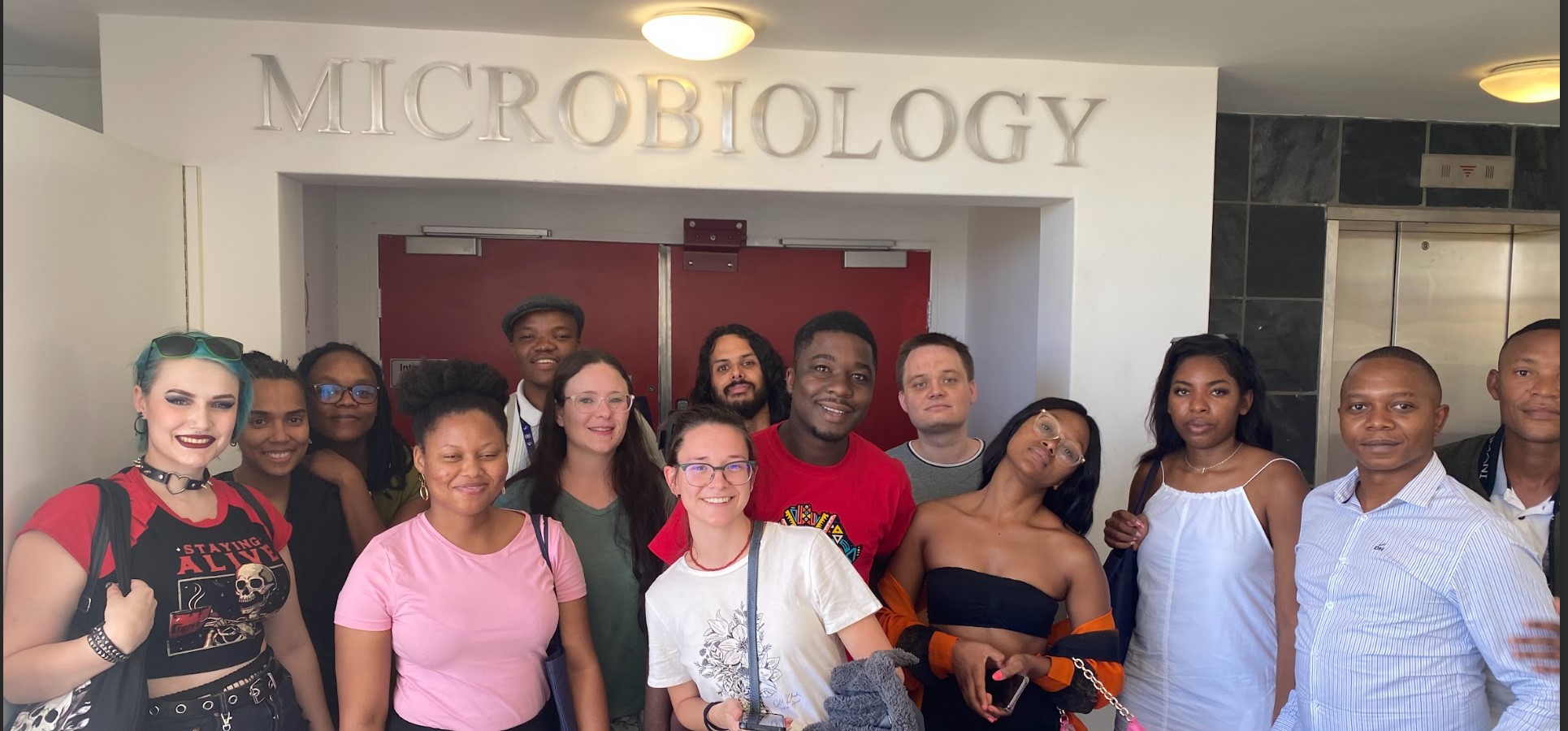
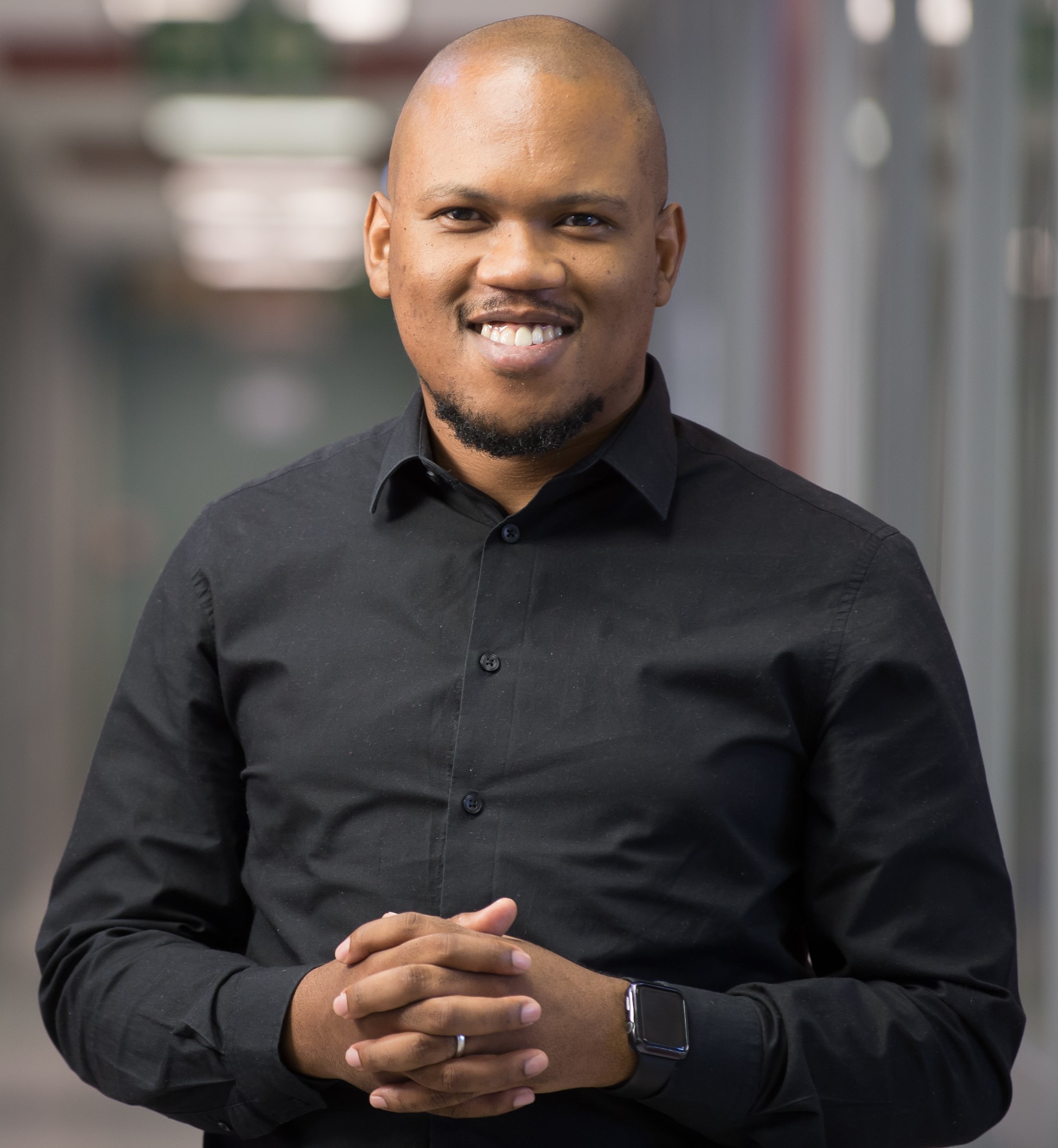 Although Prof Makhalanyane(left) could only attend the National Committee and not the presentations, his students from Pretoria University were able to visit his new workplace at Stellenbosch University. (Photo credit: Riaan Pienaar)
Although Prof Makhalanyane(left) could only attend the National Committee and not the presentations, his students from Pretoria University were able to visit his new workplace at Stellenbosch University. (Photo credit: Riaan Pienaar)
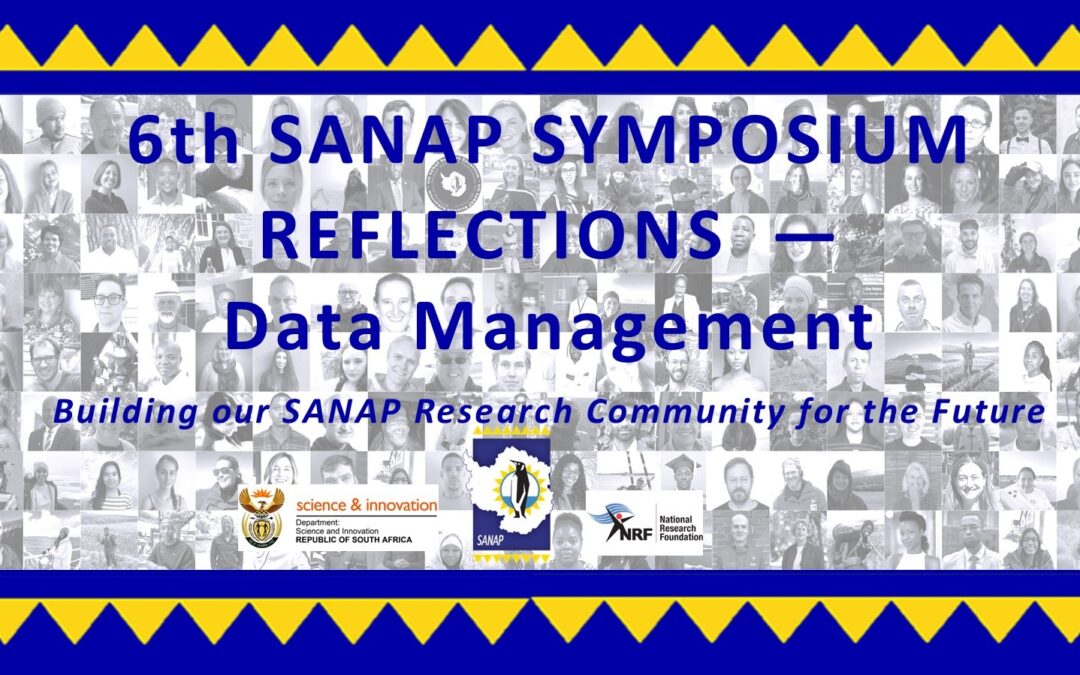
by Ria Olivier | Feb 16, 2024 | Data Management, Marion Island, Prince Edward Island, Research, SA Agulhas II, Science, Uncategorised
 During the 6th Symposium sessions were allocated to cross cutting disciplines and it led to great presentations and discussions. 12- 16 February is International Love Data Week with the theme “My Kind of Data” and this is about the data presentations at the SANAP Symposium “the SANAP community kind of data.”
During the 6th Symposium sessions were allocated to cross cutting disciplines and it led to great presentations and discussions. 12- 16 February is International Love Data Week with the theme “My Kind of Data” and this is about the data presentations at the SANAP Symposium “the SANAP community kind of data.”
Data Management
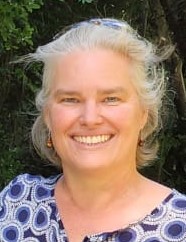 Anne Treasure(right) South Africa’s representative at Standing Committee on Data Management(SCADM) at SCAR and Data Products and Society Manager of the South African Polar Institute(SAPRI) chaired the main session on data management. This session included very interesting presentations from various science disciplines.
Anne Treasure(right) South Africa’s representative at Standing Committee on Data Management(SCADM) at SCAR and Data Products and Society Manager of the South African Polar Institute(SAPRI) chaired the main session on data management. This session included very interesting presentations from various science disciplines.
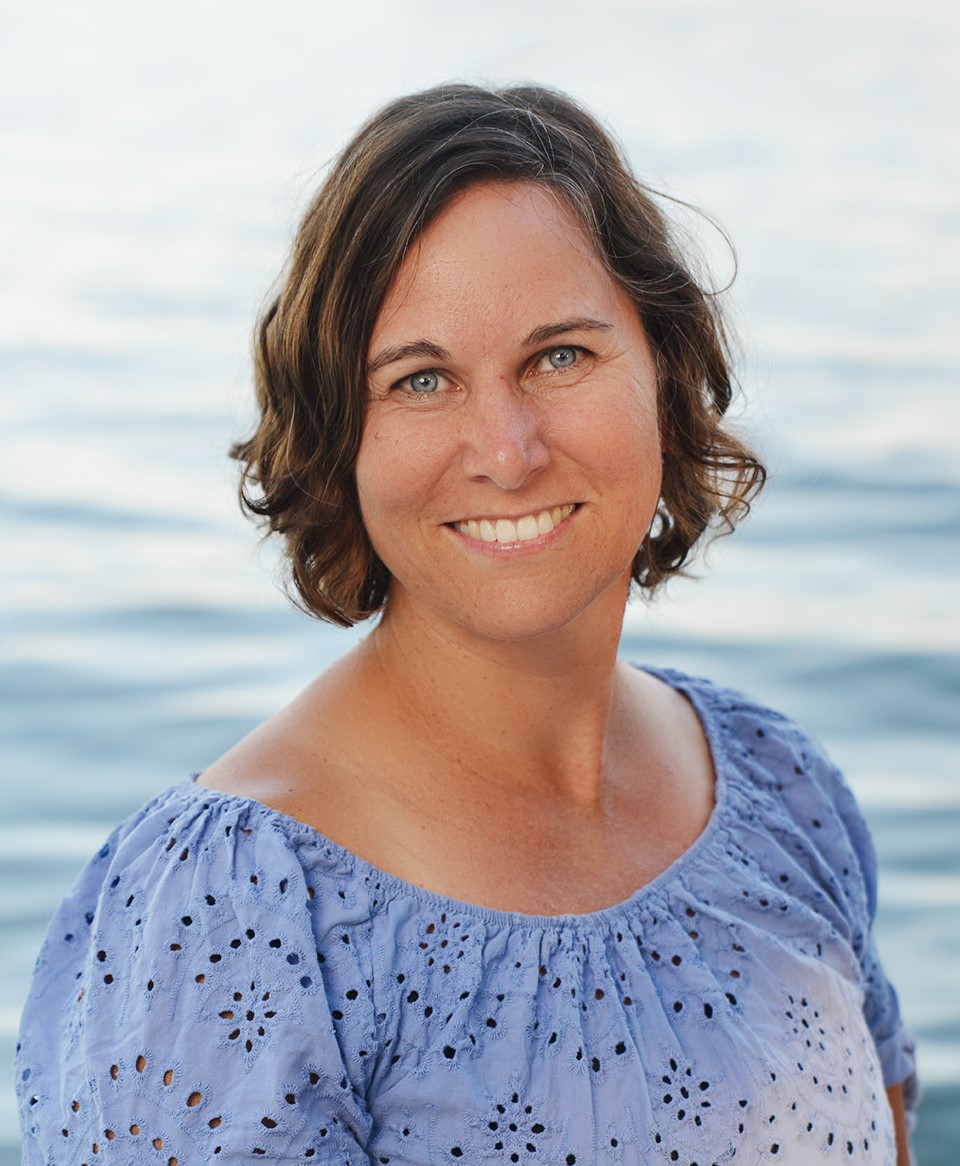
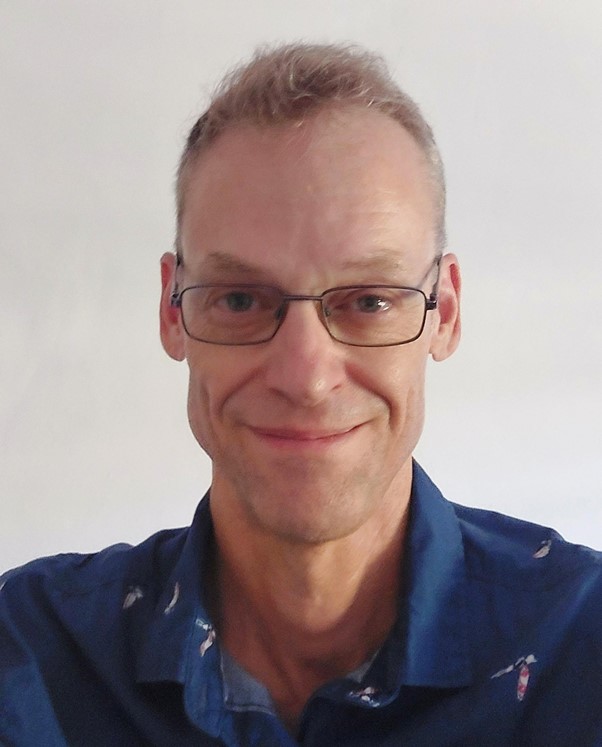

Above(l-r): Leigh McGaughey, JP Barnard, Bjorn Boyes
- First Presentation was by Leigh McGaughey on “Ecosystem modelling to explore ecosystem dynamics at the Prince Edward Islands.” (abstract)
- Data management with JP Barnard delivering a presentation on “Management of Recorded Voyage Data for the SA Agulhas II.” and discuss intricate models to ensure vessel data is manage correctly. (Abstract)
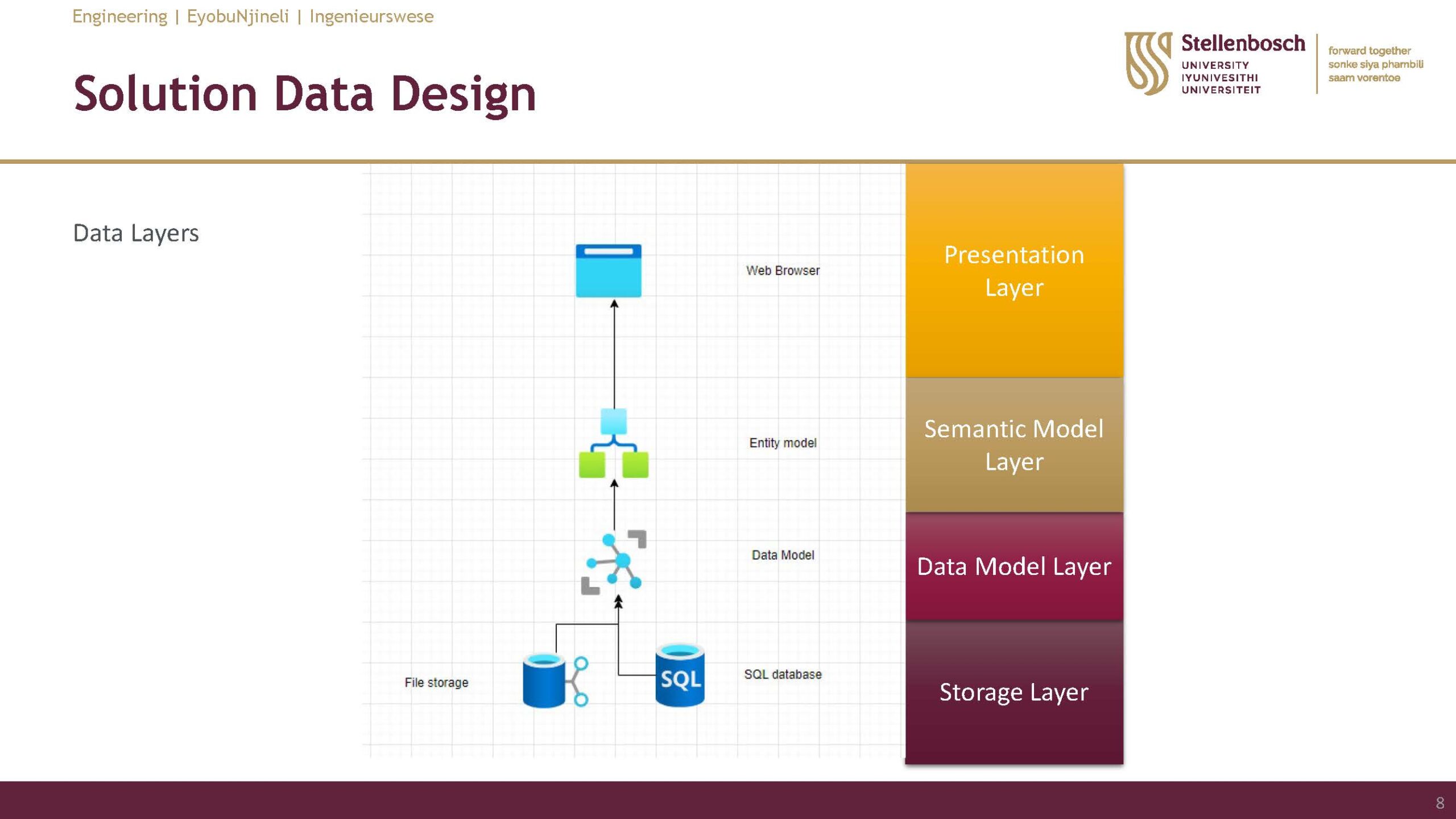
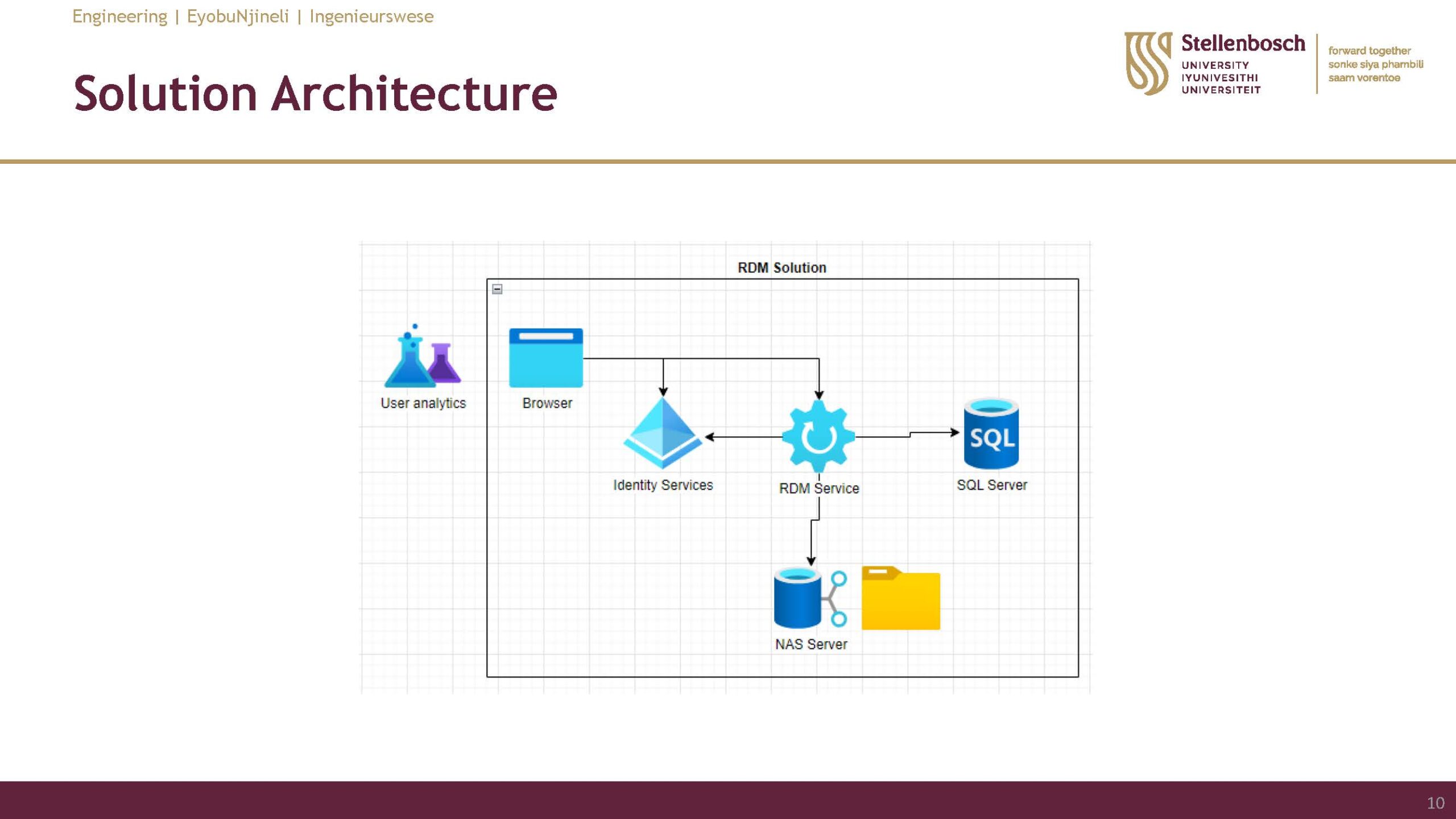
- Bjorn Boyes had everyone listening to his talk ” on how to digitally construct sub-Antarctic Marion Island. (Abstract)
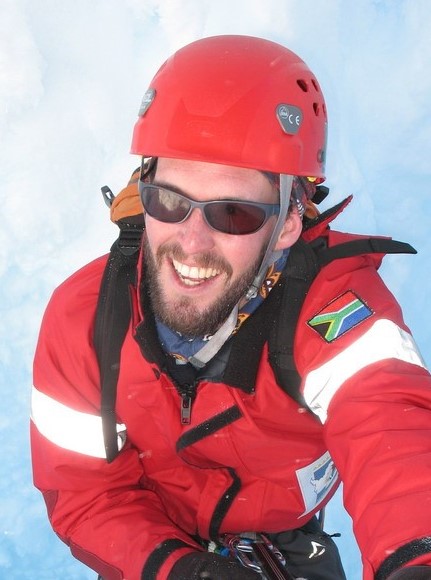
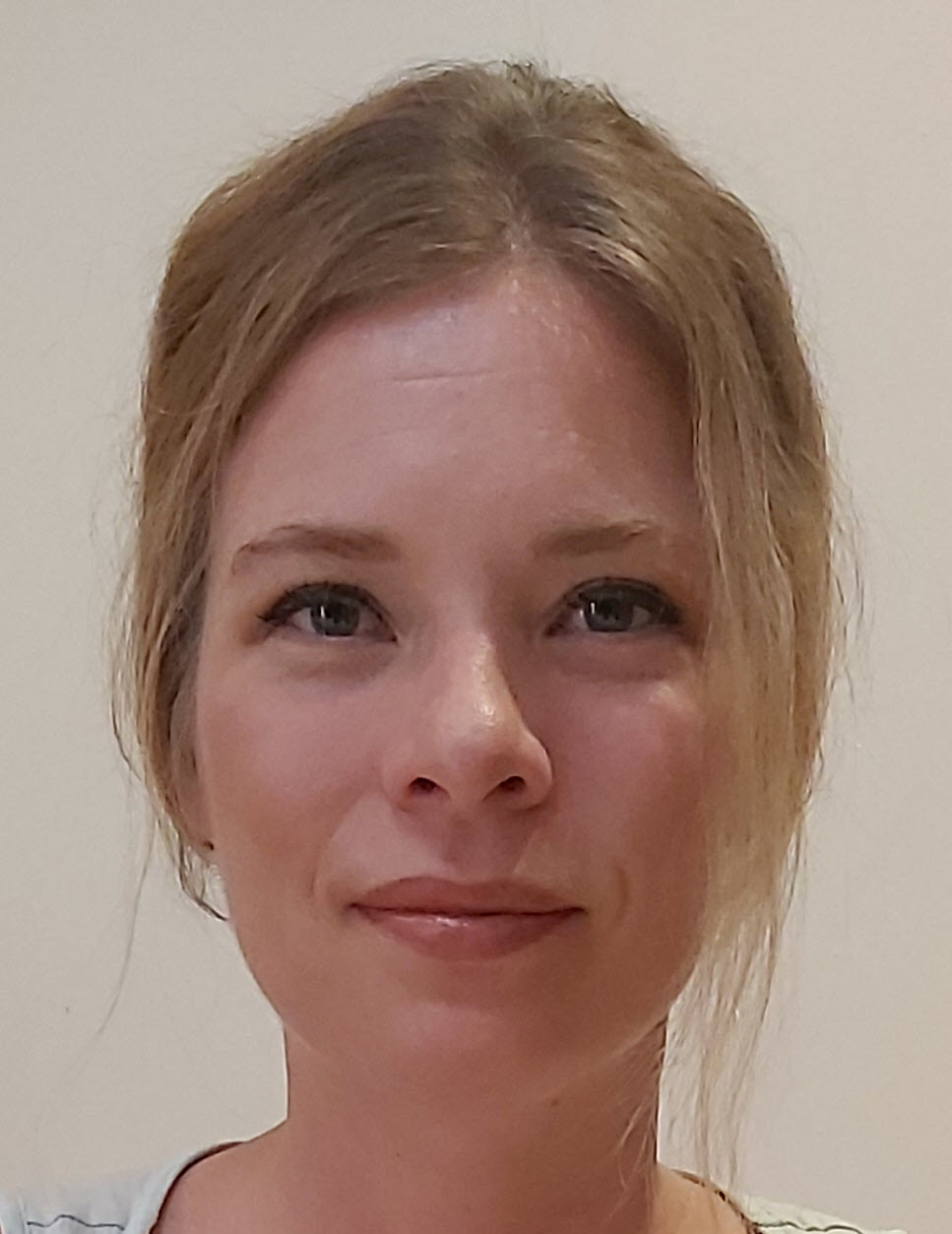
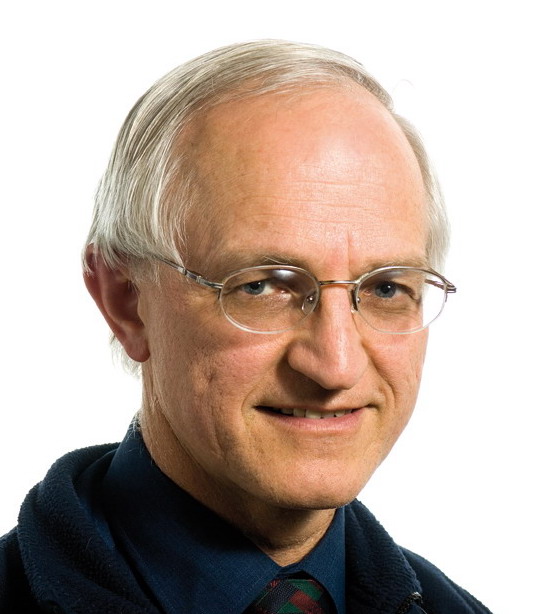
On the 30th November more data presentations was given in an ad hoc session chaired by Christel Hansen. Above(l-r): David Hedding, Christel Hansen, Pierre Cilliers
- David Hedding: A geospatial database for the sub-Antarctic Prince Edward Islands (Abstract) Read more here and see the dataset
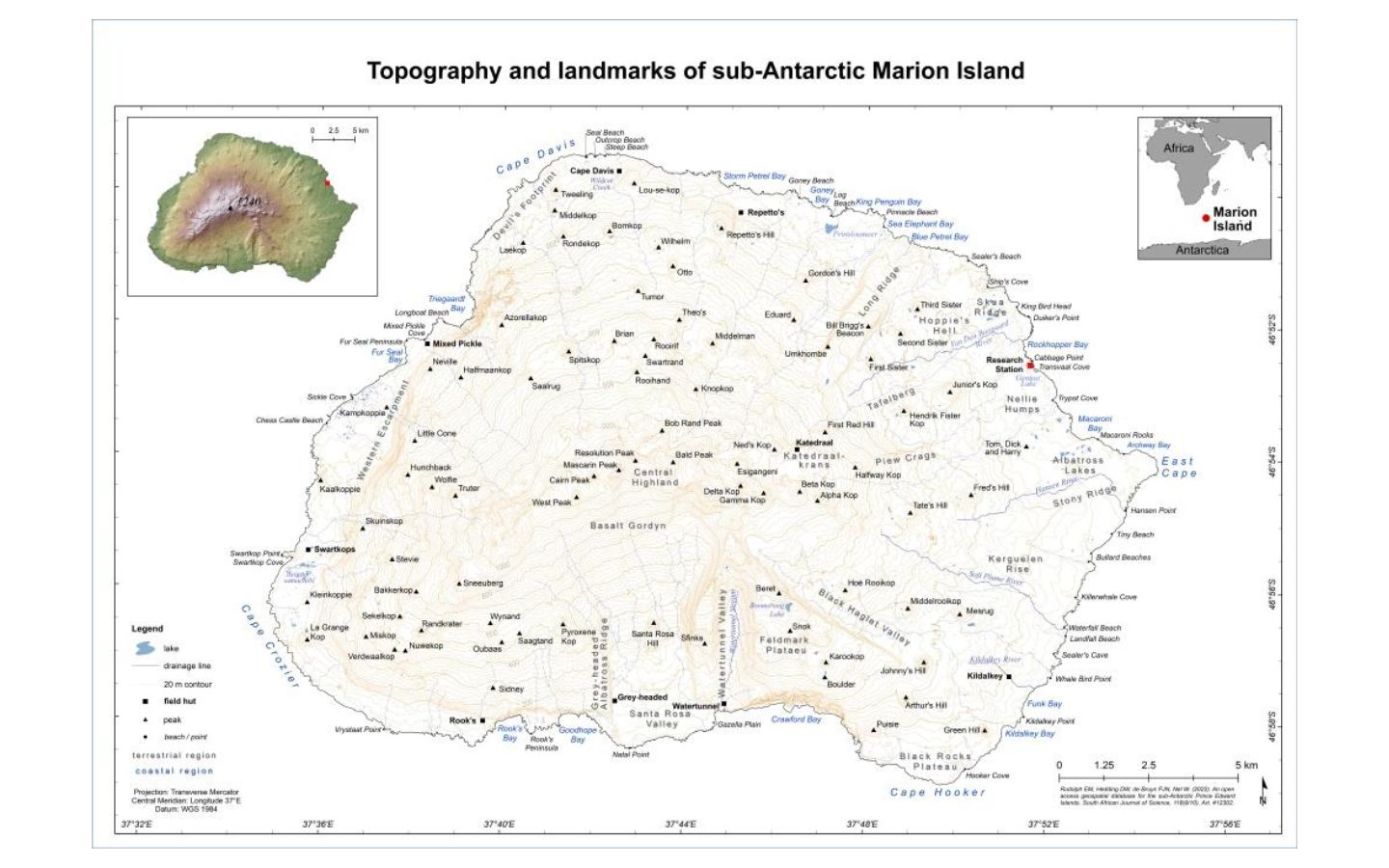 Christel Hansen delivered a presentation on “Consistent mapping and geospatial information representation in the Antarctic and sub-Antarctic: why South Africans should care.” (Abstract)
Christel Hansen delivered a presentation on “Consistent mapping and geospatial information representation in the Antarctic and sub-Antarctic: why South Africans should care.” (Abstract)- During the last research theme session chaired by Stefan Lotz of SANSA, Pierre Cilliers delivered a presentation on ” The long-term variation of the geomagnetic field in Antarctica as measured in Hermanus, Maitri and at SANAE-IV since 2007.” (Abstract)
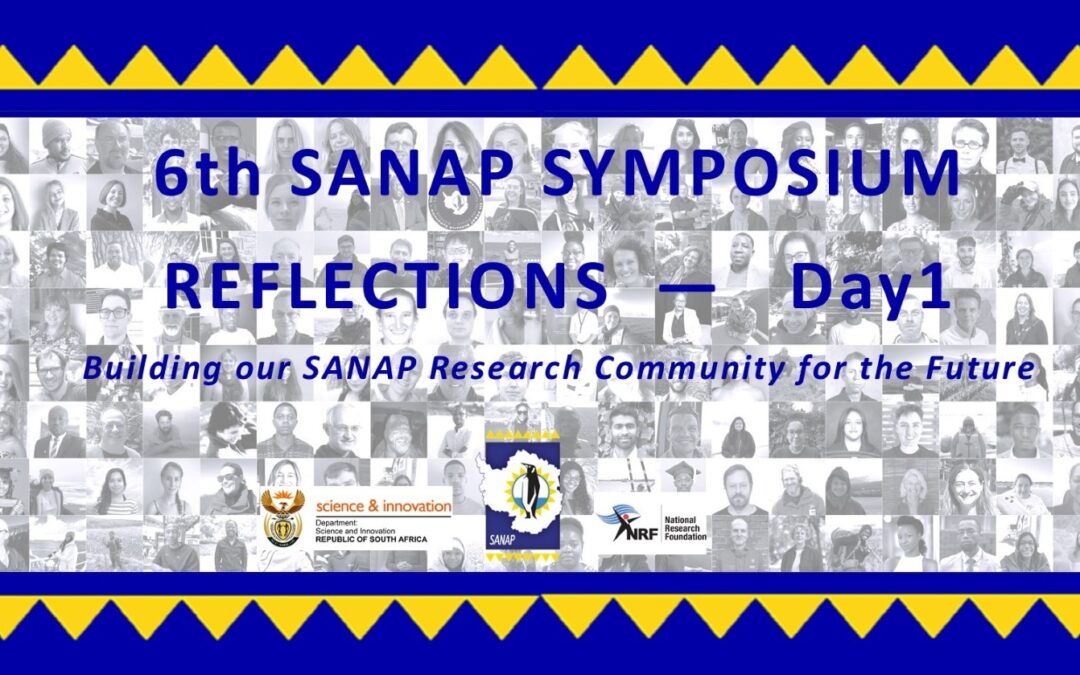
by Ria Olivier | Feb 5, 2024 | Research, SANAP, Uncategorised
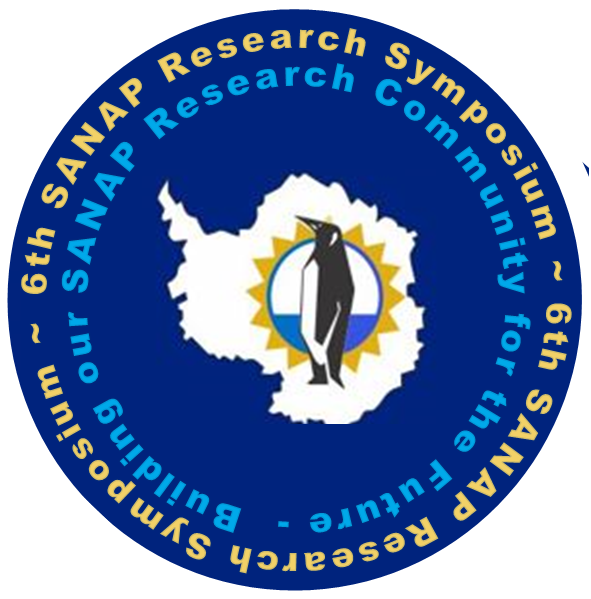
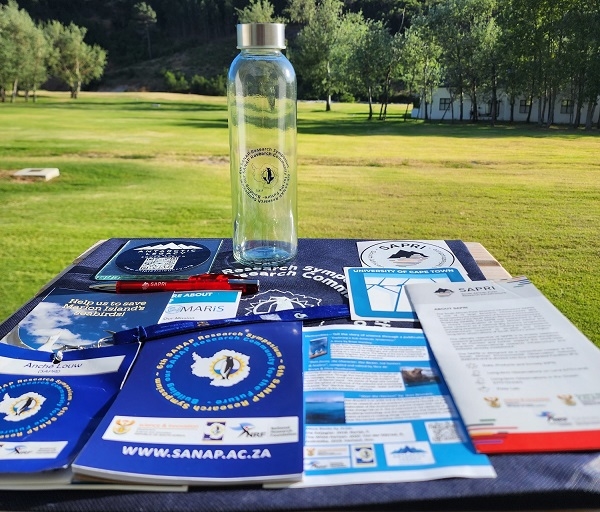 The 6th SANAP Research symposium was held at Houw Hoek Hotel in the Western Cape, from 27 November to 1 December 2023. A series of posts will be done on the SANAP website to give feedback on sessions and more will follow in the next few weeks.
The 6th SANAP Research symposium was held at Houw Hoek Hotel in the Western Cape, from 27 November to 1 December 2023. A series of posts will be done on the SANAP website to give feedback on sessions and more will follow in the next few weeks.
Delegates started arriving and most were settled in on Monday evening. Delegates from South Africa, Finland, and the United Kingdom spent the week networking with each other and with students, and listening to talks within the thematic themes identified under the South African National Antarctic Programme (SANAP). All delegates received a welcoming package to get them through the symposium.(Left: Photo Credit – Anché Louw, SAPRI)
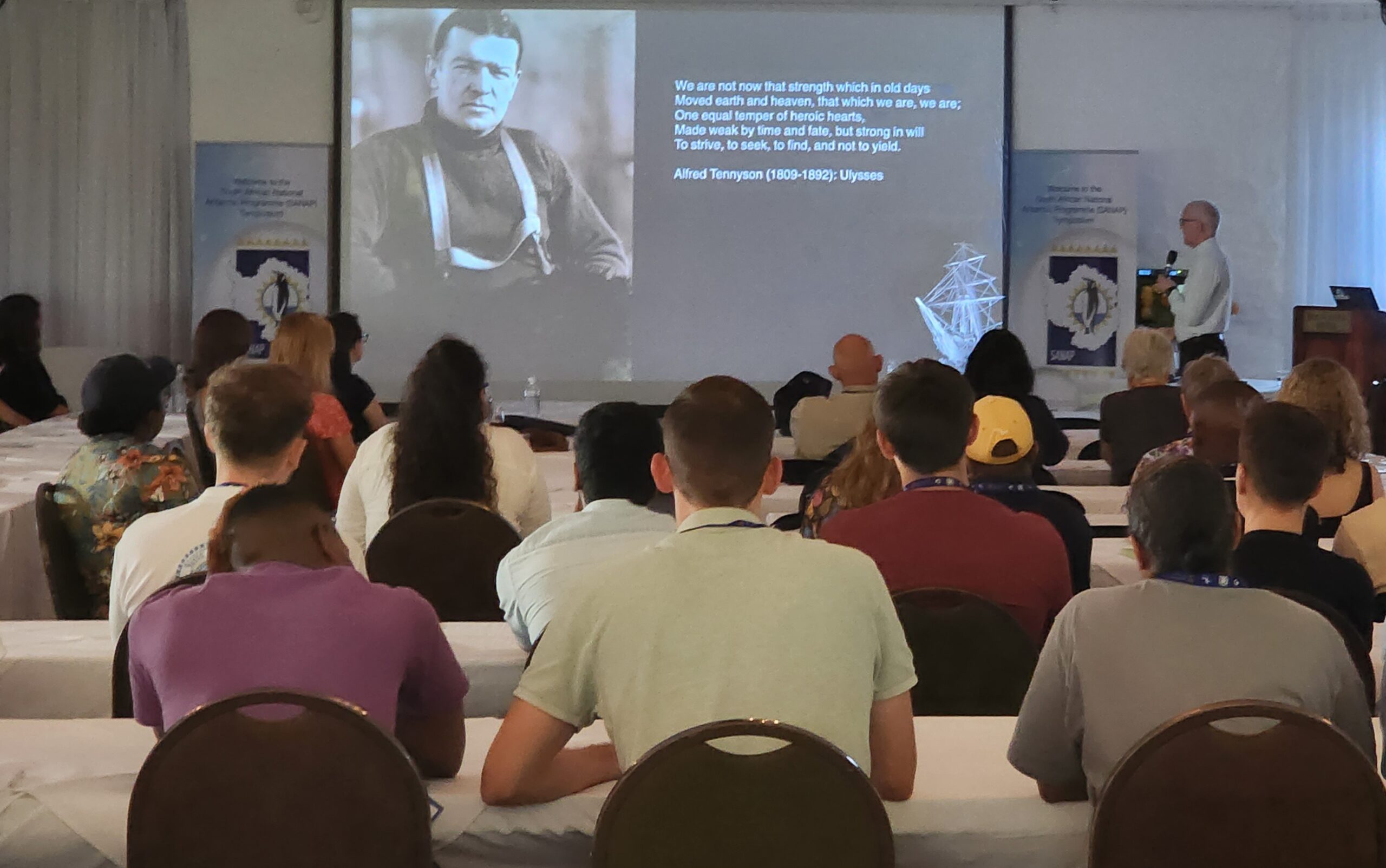 The symposium started with a keynote lecture by Prof Jukka Tuhkuri of Aalto University, Finland on the expedition to find the shipwreck of the Endurance: “On March 5th, 2022 an international Endurance22 expedition located the wreck of Endurance, the lost vessel of Ernest Shackleton. The Endurance22 expedition was organized by the Falklands Maritime Heritage Trust and the expedition team was taken to the wreck site by S.A. Agulhas II, captain Knowledge Bengu and his crew. Jukka outlined and discussed the three goals of the expedition: to locate the wreck, to tell the story of Endurance to new generations, and to conduct scientific work. The science team onboard included scientists from Stellenbosch University and Aalto University. The Keynote lecture discusses, inter alia, who Shackleton was, how the Endurance was lost and found, and what was learned on the Weddell Sea Expedition” abstract supplied by Prof Tuhkuri. (Above: Photo Credit – Anché Louw, SAPRI)
The symposium started with a keynote lecture by Prof Jukka Tuhkuri of Aalto University, Finland on the expedition to find the shipwreck of the Endurance: “On March 5th, 2022 an international Endurance22 expedition located the wreck of Endurance, the lost vessel of Ernest Shackleton. The Endurance22 expedition was organized by the Falklands Maritime Heritage Trust and the expedition team was taken to the wreck site by S.A. Agulhas II, captain Knowledge Bengu and his crew. Jukka outlined and discussed the three goals of the expedition: to locate the wreck, to tell the story of Endurance to new generations, and to conduct scientific work. The science team onboard included scientists from Stellenbosch University and Aalto University. The Keynote lecture discusses, inter alia, who Shackleton was, how the Endurance was lost and found, and what was learned on the Weddell Sea Expedition” abstract supplied by Prof Tuhkuri. (Above: Photo Credit – Anché Louw, SAPRI)
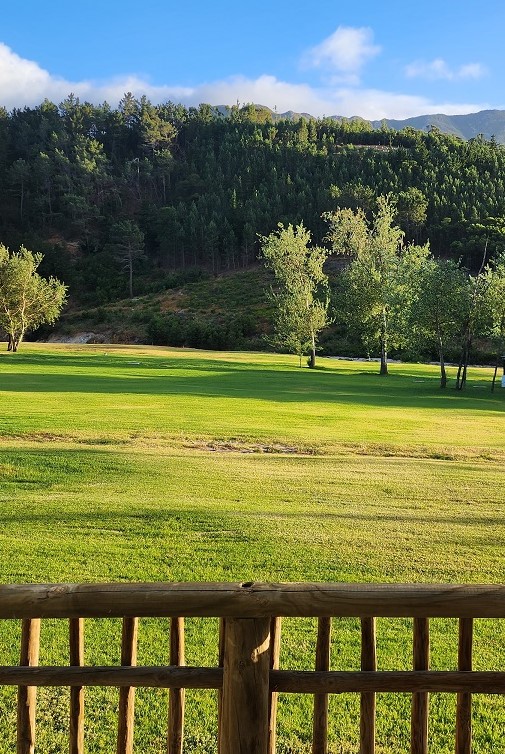 A welcoming reception took place after the keynote lecture . This reception allowed members of the SANAP community (both old and new) to interact in an informal meet and greet for the first time since the last Symposium in 2018. The 2020 Symposium was cancelled due to the COVID-19 pandemic, and a decision was made to postpone the 2022 Symposium to allow the SANAP community to generate new data post-pandemic.
A welcoming reception took place after the keynote lecture . This reception allowed members of the SANAP community (both old and new) to interact in an informal meet and greet for the first time since the last Symposium in 2018. The 2020 Symposium was cancelled due to the COVID-19 pandemic, and a decision was made to postpone the 2022 Symposium to allow the SANAP community to generate new data post-pandemic.
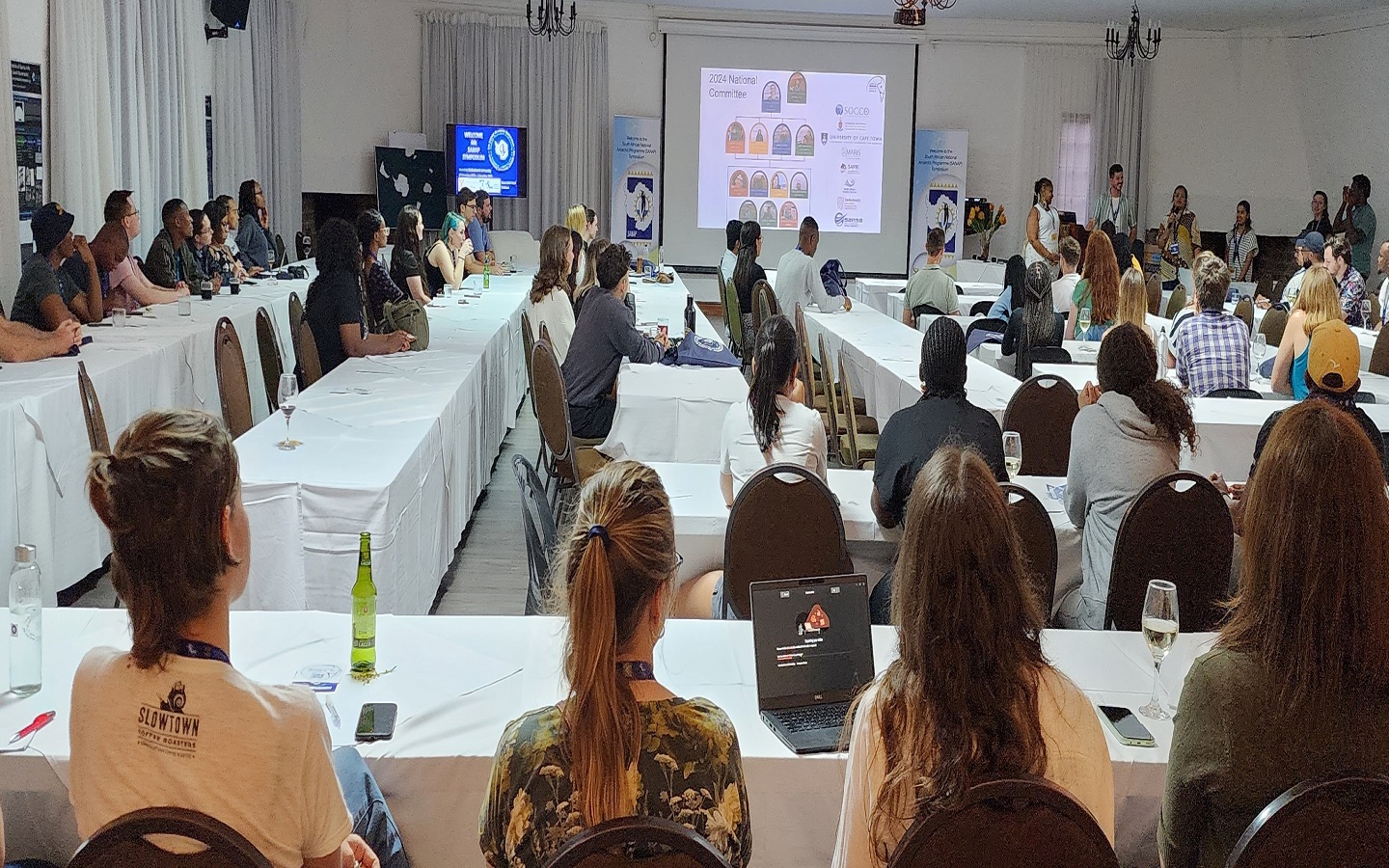 Afterwards a workshop was held by the Association for Polar Early Career Scientists of South Africa (APECSSA), and they reported back to the SANAP community n Day 3 of the symposium. (Right: Photo Credit: Anché Louw – SAPRI)
Afterwards a workshop was held by the Association for Polar Early Career Scientists of South Africa (APECSSA), and they reported back to the SANAP community n Day 3 of the symposium. (Right: Photo Credit: Anché Louw – SAPRI)
 Prior to the commencement of the Symposium, a meeting of the members of the South African national committee for Scientific Committee on Antarctic Research (SCAR) took place chaired by Prof Bettine van Vuuren and was attend in person and online by members of the committee. Prof van Vuuren as chair of the national committee feedback on day 2 of the symposium.
Prior to the commencement of the Symposium, a meeting of the members of the South African national committee for Scientific Committee on Antarctic Research (SCAR) took place chaired by Prof Bettine van Vuuren and was attend in person and online by members of the committee. Prof van Vuuren as chair of the national committee feedback on day 2 of the symposium.
More posts on sessions and presentations of the 6th SANAP research Symposium in the coming weeks.

 During the 6th SANAP symposium, time was allocated for the presentation of governance issues, and this was done on the first day during the opening ceremony. Dr Gilbert Siko , the Director of Marine & Polar Research at the Department of Science and Innovation gave the first presentation. His role within the Research Development and Support Programme it is to promote the development of research, the production of scientific knowledge, and human capital development in science areas in which South Africa enjoys a geographic advantage, that includes Antarctic and marine research. Dr Siko highlighted the strategic importance of the research conducted through the South African National Antarctic Programme.
During the 6th SANAP symposium, time was allocated for the presentation of governance issues, and this was done on the first day during the opening ceremony. Dr Gilbert Siko , the Director of Marine & Polar Research at the Department of Science and Innovation gave the first presentation. His role within the Research Development and Support Programme it is to promote the development of research, the production of scientific knowledge, and human capital development in science areas in which South Africa enjoys a geographic advantage, that includes Antarctic and marine research. Dr Siko highlighted the strategic importance of the research conducted through the South African National Antarctic Programme. Dr Siko was followed by Tracy Klarenbeek, Director of Knowledge Advancement and Support of the National Research Foundation (NRF). She highlighted that create innovative funding instruments such as SANAP serve to transform the scientific landscape and inspire a representative research community to aspire to global competitiveness. She shared the outcomes of the 2023 SANAP Call for Proposals for funding cycle 2024 – 2026 with the community. She also mentioned that mentorship initiatives for unsuccessful applicants would be implemented via SAPRI.(right)
Dr Siko was followed by Tracy Klarenbeek, Director of Knowledge Advancement and Support of the National Research Foundation (NRF). She highlighted that create innovative funding instruments such as SANAP serve to transform the scientific landscape and inspire a representative research community to aspire to global competitiveness. She shared the outcomes of the 2023 SANAP Call for Proposals for funding cycle 2024 – 2026 with the community. She also mentioned that mentorship initiatives for unsuccessful applicants would be implemented via SAPRI.(right)
 Prof Bettine van Vuuren (right), Chair of the South African National Committee for SCAR gave feedback on the committee meeting. She also highlighted the function and activities of SCAR and the importance to be informed of these activities, and to be aware of scholarship opportunities. She encouraged early career researchers to become involved in SCAR committees and action scholarships.
Prof Bettine van Vuuren (right), Chair of the South African National Committee for SCAR gave feedback on the committee meeting. She also highlighted the function and activities of SCAR and the importance to be informed of these activities, and to be aware of scholarship opportunities. She encouraged early career researchers to become involved in SCAR committees and action scholarships.  A printed Map of Antarctica was signed by everyone on International Antarctica Day 1st December 2023 at Houw Hoek Hotel!
A printed Map of Antarctica was signed by everyone on International Antarctica Day 1st December 2023 at Houw Hoek Hotel!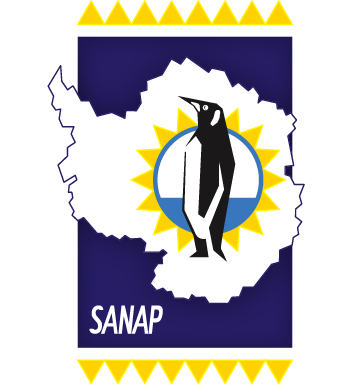

 For the first time ever at a SANAP Symposium an Early Career Event was organised by APECS-South Africa. The event was an opportunity to encourage ECRs to become members and to socialise with current members, in fact it was the first time that the current committee had all managed to meet in person and not over zoom. (Above group photo of APECSSA committee members 2024 that were able to attend the Symposium)
For the first time ever at a SANAP Symposium an Early Career Event was organised by APECS-South Africa. The event was an opportunity to encourage ECRs to become members and to socialise with current members, in fact it was the first time that the current committee had all managed to meet in person and not over zoom. (Above group photo of APECSSA committee members 2024 that were able to attend the Symposium) APECS-South Africa also wanted to use this time to engage in a community survey with ECRs to discuss important topics around career development and community inclusion. This survey was being conducted anonymously in real time and so provided a safe space for ECRs to raise any concerns they felt within the SANAP community. Most importantly, APECS-South Africa was able to then relay the results of this survey to the PIs and senior leadership of the SANAP community. (Above words used by ECRs to describe their journey, skills they need and what is missing in the organisation)
APECS-South Africa also wanted to use this time to engage in a community survey with ECRs to discuss important topics around career development and community inclusion. This survey was being conducted anonymously in real time and so provided a safe space for ECRs to raise any concerns they felt within the SANAP community. Most importantly, APECS-South Africa was able to then relay the results of this survey to the PIs and senior leadership of the SANAP community. (Above words used by ECRs to describe their journey, skills they need and what is missing in the organisation)
 APECS-South Africa plans to continue running this survey going forward at future SANAP Symposiums so that ECRs feel like their voice is being heard and help the SANAP Community become better and more inclusive for everyone. During the workshop ECRs were able to respond to many questions (above ex). If you as an ECR has not yet responded click on the QR Code.
APECS-South Africa plans to continue running this survey going forward at future SANAP Symposiums so that ECRs feel like their voice is being heard and help the SANAP Community become better and more inclusive for everyone. During the workshop ECRs were able to respond to many questions (above ex). If you as an ECR has not yet responded click on the QR Code.
 Another session within the
Another session within the  Above (l-r): Pedro Lebre, Silindile Maphosa, Lefentse Mashamaite
Above (l-r): Pedro Lebre, Silindile Maphosa, Lefentse Mashamaite Prof Makhalanyane project presentations. Above (l-r): Runesu Bakasa, Marike Hillocks, Riaan Pierneef, Mancha Mabaso, Choaro Dithugoe
Prof Makhalanyane project presentations. Above (l-r): Runesu Bakasa, Marike Hillocks, Riaan Pierneef, Mancha Mabaso, Choaro Dithugoe Above: (l-r)Nosipho Hlalukana, Nyasha Mafumo, Phillip Mawire, Mayinbogwe Buthelezi
Above: (l-r)Nosipho Hlalukana, Nyasha Mafumo, Phillip Mawire, Mayinbogwe Buthelezi Poster Presentations. Above (l-r): Sade Magabotha, Christophe Lefebvre, Elizabe Malan, Benjamin Abraham, Nelisiwe Hedebe, Michelle Bekker
Poster Presentations. Above (l-r): Sade Magabotha, Christophe Lefebvre, Elizabe Malan, Benjamin Abraham, Nelisiwe Hedebe, Michelle Bekker
 Although Prof Makhalanyane(left) could only attend the National Committee and not the presentations, his students from Pretoria University were able to visit his new workplace at Stellenbosch University. (Photo credit: Riaan Pienaar)
Although Prof Makhalanyane(left) could only attend the National Committee and not the presentations, his students from Pretoria University were able to visit his new workplace at Stellenbosch University. (Photo credit: Riaan Pienaar)
 During the 6th Symposium sessions were allocated to cross cutting disciplines and it led to great presentations and discussions. 12- 16 February is
During the 6th Symposium sessions were allocated to cross cutting disciplines and it led to great presentations and discussions. 12- 16 February is  Anne Treasure(right) South Africa’s representative at Standing Committee on Data Management(SCADM) at SCAR and Data Products and Society Manager of the South African Polar Institute(SAPRI) chaired the main session on data management. This session included very interesting presentations from various science disciplines.
Anne Treasure(right) South Africa’s representative at Standing Committee on Data Management(SCADM) at SCAR and Data Products and Society Manager of the South African Polar Institute(SAPRI) chaired the main session on data management. This session included very interesting presentations from various science disciplines.







 Christel Hansen
Christel Hansen

 The 6th SANAP Research symposium was held at Houw Hoek Hotel in the Western Cape, from 27 November to 1 December 2023. A series of posts will be done on the SANAP website to give feedback on sessions and more will follow in the next few weeks.
The 6th SANAP Research symposium was held at Houw Hoek Hotel in the Western Cape, from 27 November to 1 December 2023. A series of posts will be done on the SANAP website to give feedback on sessions and more will follow in the next few weeks. The symposium started with a keynote lecture by Prof Jukka Tuhkuri of Aalto University, Finland on the expedition to find the shipwreck of the Endurance: “On March 5th, 2022 an international Endurance22 expedition located the wreck of Endurance, the lost vessel of Ernest Shackleton. The Endurance22 expedition was organized by the Falklands Maritime Heritage Trust and the expedition team was taken to the wreck site by S.A. Agulhas II, captain Knowledge Bengu and his crew. Jukka outlined and discussed the three goals of the expedition: to locate the wreck, to tell the story of Endurance to new generations, and to conduct scientific work. The science team onboard included scientists from Stellenbosch University and Aalto University. The Keynote lecture discusses, inter alia, who Shackleton was, how the Endurance was lost and found, and what was learned on the Weddell Sea Expedition” abstract supplied by Prof Tuhkuri. (Above: Photo Credit – Anché Louw, SAPRI)
The symposium started with a keynote lecture by Prof Jukka Tuhkuri of Aalto University, Finland on the expedition to find the shipwreck of the Endurance: “On March 5th, 2022 an international Endurance22 expedition located the wreck of Endurance, the lost vessel of Ernest Shackleton. The Endurance22 expedition was organized by the Falklands Maritime Heritage Trust and the expedition team was taken to the wreck site by S.A. Agulhas II, captain Knowledge Bengu and his crew. Jukka outlined and discussed the three goals of the expedition: to locate the wreck, to tell the story of Endurance to new generations, and to conduct scientific work. The science team onboard included scientists from Stellenbosch University and Aalto University. The Keynote lecture discusses, inter alia, who Shackleton was, how the Endurance was lost and found, and what was learned on the Weddell Sea Expedition” abstract supplied by Prof Tuhkuri. (Above: Photo Credit – Anché Louw, SAPRI) A welcoming reception took place after the keynote lecture . This reception allowed members of the SANAP community (both old and new) to interact in an informal meet and greet for the first time since the last Symposium in 2018. The 2020 Symposium was cancelled due to the COVID-19 pandemic, and a decision was made to postpone the 2022 Symposium to allow the SANAP community to generate new data post-pandemic.
A welcoming reception took place after the keynote lecture . This reception allowed members of the SANAP community (both old and new) to interact in an informal meet and greet for the first time since the last Symposium in 2018. The 2020 Symposium was cancelled due to the COVID-19 pandemic, and a decision was made to postpone the 2022 Symposium to allow the SANAP community to generate new data post-pandemic. Afterwards a workshop was held by the Association for Polar Early Career Scientists of South Africa (APECSSA), and they reported back to the SANAP community n Day 3 of the symposium. (Right: Photo Credit: Anché Louw – SAPRI)
Afterwards a workshop was held by the Association for Polar Early Career Scientists of South Africa (APECSSA), and they reported back to the SANAP community n Day 3 of the symposium. (Right: Photo Credit: Anché Louw – SAPRI) Prior to the commencement of the Symposium, a meeting of the members of the South African national committee for Scientific Committee on Antarctic Research (SCAR) took place chaired by Prof Bettine van Vuuren and was attend in person and online by members of the committee. Prof van Vuuren as chair of the national committee feedback on day 2 of the symposium.
Prior to the commencement of the Symposium, a meeting of the members of the South African national committee for Scientific Committee on Antarctic Research (SCAR) took place chaired by Prof Bettine van Vuuren and was attend in person and online by members of the committee. Prof van Vuuren as chair of the national committee feedback on day 2 of the symposium.
